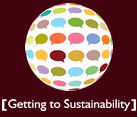By Sophie Vorrath in RenewEconomy on 20 February 2013
Yesterday we reported that Westpac had committed $6 billion in funding for clean technology and environmental services lending, as part of its newly launched five-year, $8 billion 2017 sustainability strategy.
Since then, RenewEconomy emailed Emma Herd – Westpac’s executive director of emissions and environment – to ask what this meant, exactly; whether it was a significant move for the bank, and whether there were any particular areas, or projects, in cleantech and green business the money might be targeted towards.
Here is what she had to say:
RE: How much has Westpac invested/lent to Australian cleantech and green business in the past? How much of a change, or increase in spending, is this for the bank?
EH: We currently have exposures of just over $3 billion, so we are aiming to effectively double our activity by 2017.
RE: Will the bank be favouring any type of cleantech projects in particular? Wind energy, solar, emerging technologies, energy efficiency?
EH: We anticipate that the bulk of this funding will go towards renewable energy, the greening of the property sector and water efficiency technologies and services. But we are also targeting a broader range of emerging environmental services in areas, such as energy efficiency, waste management, carbon farming, sustainable land management and green advisory businesses, for example.
RE: Are there any projects lined up already?
EH: We have a number of projects in the pipeline which we are quite excited about and will be talking about more over the course of the year.
RE: What does the bank – a business sustainability leader – think of the Coalition’s vow to dismantle the CEFC and various other green policy initiatives of the Gillard government? If this facility was removed, would banks like Westpac be more, or less inclined to invest in Australian cleantech and green business? How does it affect stability and investment in the sector?
EH: Our $6 billion commitment is about what Westpac can do to drive activity in a new industrial sector of the economy. The need for business to manage increasing resource constraints while continuing to grow is an investment megatrend. We believe we can play a positive role by providing practical products and services to help our customers manage the impact of environmental challenges on their business. We will continue to look for ways to support the transformation of the Australian economy out into the future.
